Planning worship?
Check out our sister site, ZeteoSearch.org,
for 20+ additional resources related to your search.
- |
User Links
Person Results
‹ Return to hymnal
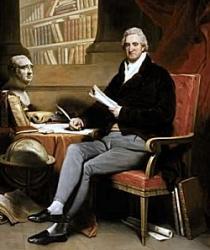
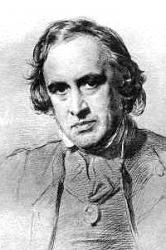
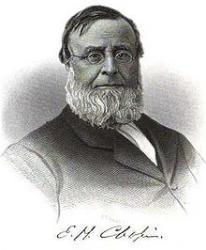

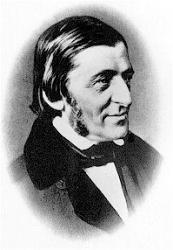
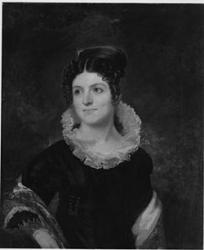
Export as CSV
James Flint
1779 - 1855 Person Name: Flint Hymnal Number: 433 Author of "Remembrance of Our Fathers" in A Book of Hymns for Public and Private Devotion (15th ed.) Flint, James, D.D., born at Reading, Mass., 1779, and graduated at Harvard, 1802. In 1806 he became pastor of a Unitarian Church at East Bridgewater, Mass., from which he passed to East Church, Salem, 1821. Died in 1855. In 1820 he contributed one hymn to Sewell’s New York Collection, and in 1843 he also published A Collection of Hymns, to which he contributed from 10 to 12 originals.
His best known hymns are:—
1. Here to the High and Holy One. This hymn, "On leaving an Ancient Church," appeared in the Cambridge Selection of 1828.
2. In pleasant lands have fallen the lines. Remembrance of our Fathers. Written for the bicentenary of Quincy, Mass., May 25, 1840, and published in his Collection, 1843.
3. Happy the unrepining poor. Appeared in Sewell's New York Collection, 1820. Dr. Flint's hymns are unknown to the English Collections.
[Rev. F. M. Bird, M.A.]
--John Julian, Dictionary of Hymnology (1907)
James Flint
William Roscoe

1753 - 1831 Person Name: W. Roscoe Hymnal Number: 292 Author of "The Golden Rule" in A Book of Hymns for Public and Private Devotion (15th ed.) Roscoe, William, the father, was born March 8, 1753, in Liverpool, of humble origin. After very meagre schooling, and three years of work in his father's market garden, he was articled to an attorney, and subsequently practised in Liverpool till 1796, when he withdrew from the profession. From the first literature was his chief delight, and throughout a long career of public usefulness he united its pursuit with the efforts of enlightened patriotism and the advocacy of higher education and reform. Liverpool was a centre of the old slave-trade, and Roscoe was one of the first to raise his voice against the iniquity. At the age of 20 he had already uttered a protest in his descriptive poem Mount Pleasant, and in 1787 he published a longer poem, The Wrongs of Africa (Pt. ii. 1788), devoted to the subject. During his brief parliamentary experience as member for Liverpool, in 1807, he had further opportunity of advocating the cause of liberty and humanity. His first great historical work, the Life of Lorenzo dé Medici, was published in 1796, and the Life and Pontificate of Leo the Tenth, in 1805. After withdrawing from his legal practice, Roscoe had hoped to be able to devote himself entirely to letters, but the claims of friendship induced him in 1800 to enter into a banking business, which involved him in commercial troubles, ending in 1820 in his bankruptcy. His library had to be sold, but part of it was bought by friends, and presented to the Liverpool Athenæum, which in 1789 Roscoe had been instrumental in founding. In 1822 he published Illustrations of the Life of Lorenzo dé Medici, defending the views adopted in his former history, and two years later edited a new edition of Pope's works, with a life of the poet. He died June 30, 1831. (Cf. The Life of William Roscoe, by his son, Henry Roscoe, in 2 vols., London, T. Cadell, 1833.)
As a member of the congregation of Unitarians meeting in Renshaw Street Chapel, Liverpool, Roscoe took part in preparing A Selection of Psalms and Hymns for Public and Private Worship, printed for their use in 1818. He contributed eight hymns and the concluding anthem. Of these hymns the following are in common use at the present time:—
1. Let our loud song of praise arise. Praise.
2. Go, suffering habitant of earth. Life, a Warfare.
3. Great God, beneath Whose piercing eye. Divine Providence.
4. Thus said Jesus, Go and do. Love to our Neighbour.
5. What is the first and great command ? The Commandments.
These hymns are in several Unitarian collections, including Martineau's Hymns, 1840. No. 3 was written in 1788, as a "secular hymn" of ten stanzas, to be sung at the Benn's Garden Chapel on the Centenary of the Revolution.
--John Julian, Dictionary of Hymnology (1907)
William Roscoe
Richard Chenevix Trench

1807 - 1886 Person Name: R. C. Trench Hymnal Number: 294 Author of "The Law of Love" in A Book of Hymns for Public and Private Devotion (15th ed.) Trench, Richard Chenevix, D.D. was born in North Frederick Street, Dublin, on Sept. 9th, 1807, during a visit of his parents of some mouths to Ireland. His father was Richard Trench, 6th son of Frederick Trench, of Woodlands, Co. Galway; his mother Melesina, only grandchild and heiress of Richard Chenevix, Bishop of Waterford, and widow of Colonel St. George. On his mother's side he was almost purely French, the grandfather of Bishop Chenevix of Waterford, Philip Chenevix of d'Eply of Loraine having only taken refuge in England on the revocation of the Edict of Nantes. The Huguenot refugee families married for a long time within themselves, and in Mrs. Richard Trench, four distinct foreign strains were blended. Her sons (the Archbishop and his brothers, besides his two sisters) were the only descendants of the Refugee Philip, either in the male or female line, all the other branches having come to an end. Trench's home in childhood was Elm Lodge, close to the village of Bursledon, not far from Southampton. In February, 1816 he proceeded to Twyford School, and in 1819 to Harrow, where he won great distinction. In October 1825 he was entered at Trinity College, Cambridge. His mother's correspondence is full of references to a little periodical called The Translator, begun in 1825, or immediately on his becoming an undergraduate. She was his ardent co-worker both as contributor and critic. In 1826 he had acquired Spanish, and in that year applied himself to preparing and publishing a volume of Miscellanies, of which the "profits were to be sent to the committee formed for the relief of the exiled Spaniards." On May 27th, 1827, his mother died at Malvern. The Letters and Memorials (1888) give vivid and exciting details of his continuous interest and daring personal service and sacrifices on behalf of Spain. It was during the winter days of 1829-30 that the consultations and schemes respecting Spain were discussed in John Sterling's apartment. Robert Boyd, Trench's cousin, threw himself and his entire fortune into the plot by purchasing a small ship in the Thames and storing it with arms, in which General Torrijos and fifty picked Spaniards were to sail for the new adventure of the Golden Fleece. The enterprise ended tragically. Boyd and others perished by the inevitable vengeance of the Spanish sovereign when captured. By the hand of God, Trench was safe in Gibraltar.
Till far up in young manhood he was undecided as to his calling, Law rather than Divinity colouring his thoughts and plans. He left Cambridge on February 1st, 1829, and rejoined his widowed father at Elm Lodge, near Southampton. He married, at the Abbey Church, Bath, on May 31st, 1832, his own cousin, Frances Mary Trench, daughter of his uncle, Francis Trench (2nd son of Frederick Trench, of Woodlawn, co. Galway, Ireland, and next brother to the 1st Lord Ashtown). On October 7th, 1832, he received Deacon's Orders in Norwich Cathedral at the hands of the aged Bishop Bathurst of Norwich. His first curacy was at Hadleigh, Norfolk, with H. J. Rose. He was ordained priest early in July, 1835, by Bishop Sumner, of Winchester. He published in 1835 The Story of Justin Martyr, and other Poems (Moxon). This was (practically) his first book. In 1838 followed Sabbation, Honor Neale, and other Poems, with Notes. In 1840 appeared his first prose work, Notes on the Parables of our Lord, subsequently companioned with Notes on the Miracles of our Lord (1846). In 1841 "the loving discipline of pain" visited his heart and hearth by the death of his eldest born, a deep sorrow which gave its subtlest and finest inspiration to his Elegiac Poems. A third volume of poetry, Poems from Eastern Sources, the Steadfast Prince, and other Poems, was published early in 1842; and a fourth, Genoveva, later in the same year. Early in 1843 he delivered his Five Sermons before the University of Cambridge, published in 1844. In 1844 also was published Exposition of the Sermon on the Mount, drawn from the Writings of St. Augustine, with Observations. In this same year he became Vicar of Itchen Stoke.
In 1845 he delivered a lecture "On Language as an instrument of Knowledge," which expanded into his famous and suggestive Study of Words. In 1846 he was appointed Professor of Divinity at King's College, London, later changed into "Professor of the Exegesis of the New Testament,” which he held until 1858. The friendship between Trench and Maurice here was very beautiful. In 1846 also came the Hulsean Lectures, their subject being Christ "the Desire of all Nations." In 1849 appeared his Sacred Latin Poetry. This is an inestimable book. In 1852, Lessons on Proverbs and Study of Words, and in 1855 English Past and Present appeared. His Synonyms of the New Testament (1854) was a permanent contribution and inspiration to Philology and Theology. Life's Dream: the Great Theatre of the World, from the Spanish of Calderon, with an Essay on his Life and Genius, was published in 1856; 2nd ed. in 1880. The Crimean war drew from him his finest verse, Poems written during the Russian War (1854-55). In 1856 he was appointed Dean of Westminster. In 1861 was published his Commentary on the Epistles to the Seven Churches in Asia. On New Year's Day, 1864, he was consecrated Archbishop of Dublin in Christ Church Cathedral. He instantly took a foremost place in the regard of the entire community. His published Sermons, including his Studies on the Gospels (1867), are amongst the most thoughtful and quietly eloquent in our language; as are his Lectures on Plutarch (1873), and others. Timolem (1881) was his last poem. His final confirmation was in St. Bartholomew's Church on May 16th, 1884. On November 28th, 1884, he resigned his Archbishopric. He died in London, March 28, 1886. Few have left behind them a more stainless, a more loveable, a more enviable memory. He was sweetness and light embodied. [Rev. A. B. Grosart, D.D., LL.D]
In the strict sense of the word Archbishop Trench, although a poet, was not a hymn-writer. Some of his poetical pieces are used as hymns, but their use is limited. These include:—
1. High thoughts at first, and visions high. Ordination. Appeared in his Story of Justin Martyr, &c, 1835, p. 53, in 1 stanza of 8 lines, and entitled "To a Friend entering the Ministry." Its use as a hymn is in an abbreviated form.
2. I say to thee, do thou repeat. Safety in Divine Guidance. Published in his Story of Justin Martyr, &c, 1835, in 10 stanzas of 3 lines, again in his Poems, 1865, p. 98, and ed. 1885, i. p. 140. It is headed, "The Kingdom of God."
3. Let all men know that all men move. Love of God. Published in his Story of Justin Martyr, &c, 1835, p. 111.
4. Lord, weary of a painful way. Evening. Appeared in his Sabbation, Honor Neale, &c, 1838, p. 117; and Poems, 1885, i. p. 207.
5. Not Thou from us, 0 Lord, hut we. Divine Love. Published in his Story of Justin Martyr, &c, 1835, p. 52, in 14 1., and in his Poems, 1885, i. p. 109.
6. Pour forth the oil, pour boldly forth. The Law of Love. Appeared in his Sabbation, Honor Neale, and Other Poems, 1838, p. 132, in 5 stanzas of 4 lines, and entitled "The Law of Love," also in his Poems, 1865, p. 150, and ed. 1885, i. p. 215. From this is taken the hymn, Make channels for the stream of love."
7. Some murmur when their sky is clear. Contentment. Published in the Sabbation, Honor Neale, and Other Poems, 1838, p. 116, in 2 st. of 8 1., in his Poems, 1865, p. 113, and ed. 1885, i. p. 142.
8. Thou inevitable day. Death. From his Sabbation, Honor Neale, &c, 1838, p. 99, in 14 stanzas of 3 lines, and headed, "The Day of Death." Also in Poems, 1885, i. p. 213.
-- Excerpts from John Julian, Dictionary of Hymnology (1907)
Richard Chenevix Trench
Henry Moore
1732 - 1802 Person Name: H. Moore Hymnal Number: 44 Author of "Manliness and Freedom" in A Book of Hymns for Public and Private Devotion (15th ed.) Moore, Henry, 1732-1802. Son of a Presbyterian minister of the same name at Plymouth. Educated at Doddridge's Academy at Northampton, from 1757 to 1788 minister at Modbury, and then at Liskeard. Author of Lyrical and Miscellaneous Poems, published posthumously with a memoir by Dr. Aikin. Of his hymns, which are frequent in the books later than Kippis, the Dukinfield Collection, 1822, gives 5.
1. All earthly charms, however dear. The unfading beauty of holiness.
2. Amidst a world of hopes and fears. A prayer for guidance.
3. Assist us, Lord, to act, to be. Divine Help Solicited.
4. My God, thy boundless love I praise. The divine Love.
5. Soft are the fruitful showers that bring. A song of spring and New Life.
6. Supreme and universal light. Prayer for spiritual excellence.
--John Julian, Dictionary of Hymnology (1907)
Henry Moore
E. H. Chapin

1814 - 1880 Hymnal Number: 487 Author of "The Gate of Heaven" in A Book of Hymns for Public and Private Devotion (15th ed.) Chapin, Edwin Hubbell, D.D., was the most distinguished man of the Universalists in later years. In his early days he was eminent as a lecturer; and as a preacher until his death. He was born in Union village, Washington, N. Y., Dec. 29, 1814, and educated at Bennington, Vermont. He was successively pastor at Richmond, Virginia, 1837; Charleston, Mass.; Boston, 1846; and from 1848, of the Church of the Divine Paternity, New York city. He died Dec. 26, 1880. He published several works, and edited, with J. G. Adams, Hymns for Christian Devotion, Boston, 1846. This is perhaps the most prominent Universalist Collection in the States. To it Dr. Chapin contributed the following hymns:—
1. Amid surrounding gloom and waste. During a Storm.
2. Father, at this altar bending. Installation of a Pastor.
3. Father, lo, we consecrate. Opening of a Place of Worship.
4. Hark! hark! with harps of gold. Christmas.
5. O Thou who didst ordain the word. Ordination.
6. Our Father, God! not face to face. Opening of a Place of Worship.
7. When long the soul has slept in chains. Charitable Institutions.
Of these No. 6 is the most widely used. In addition Dr. Chapin is the author of:—
8. Now host with host assembling. Temperance. This was given in Longfellow and Johnson's Book of Hymns (Unitarian), 1848, and from thence has passed Into other collections. It is entitled "Triumph of Temperance." and is well known. [Rev. F. M. Bird, M.A.]
--John Julian, Dictionary of Hymnology (1907)
E. H. Chapin
Mary Whitwell Hale
1810 - 1862 Person Name: Mary W. Hale Hymnal Number: 568 Author of "Christmas" in A Book of Hymns for Public and Private Devotion (15th ed.) Hale, Mary Whitwell, daughter of Eliphalet Hale of Boston, U.S.A., was born at Boston, Jan. 29, 1810. After receiving a good education she devoted herself to educational work in Boston, Taunton, Keene, N. H., and elsewhere. She died Nov. 17, 1862. Her hymn-writing was brought into notice by two hymns, one on "Home," and the second on "Music," which were written for a juvenile concert at the Unitarian Church in Taunton, April 1834. Several of the hymns and poetical pieces which she subsequently wrote were contributed to the Christian Register under the initials "Y. L. E.," the concluding letters of her name. Her Poems were published at Boston in 1840. A few of her hymns also appeared in the Unitarian Christian Hymns for Public and Private Worship, commonly known as the Cheshire Collection, in 1844. [American Hymnody, § vii.] Putnam (to whom we are indebted for these details) gives the following of her hymns, with others, in full in his Singers and Songs of the Liberal Faith, 1874 :
1. "Praise for the glorious light." Temperance Anniversary.
2. "This day let grateful praise ascend." Sunday.
3. "Whatever dims the sense of truth." A Mother's Counsel.
4. "When in silence o'er the deep." Christmas.
These hymns were given in the Cheshire Collection, 1844. Nos. 2 and 3 were taken from her Poems. Some of the other pieces given by Putnam are worthy of attention.
-- John Julian, Dictionary of Hymnology
Mary Whitwell Hale
Stephen Greenleaf Bulfinch

1809 - 1870 Person Name: Bulfinch Hymnal Number: 90 Author of "Voice of God in the Soul" in A Book of Hymns for Public and Private Devotion (15th ed.) Bulfinch, Stephen Greenleaf, D.D. This Unitarian minister was born at Boston, June 18, 1809, and removed to Washington in 1818, his father being the architect of the Capitol. He graduated at Columbian College and the Cambridge Theological School. In 1831 lie was ordained at Charleston, S.C., as assistant to Dr. Gilman. Subsequently he was pastor at Pittsburg, Pennsylvania; Washington, 1838; Nashua, New Hampshire, 1845; Dorchester, Mass., 1852; and "East Cambridge, Mass., 1865. He died at the last place, Oct. 12, 1870. His works include:—
(1) Contemplations of the Saviour; A Series of Extracts from the Gospel History, with Reflections and Original and Selected Hymns. Boston, Carter and Hendee, 1832. This has been reprinted in England. (2) Poems, Charleston, S.C., 1834. (3) Lays of the Gospel, 1845. In addition to these works, which contain his original hymns, he also published (4) The Harp and Cross, a selection of hymns, in 1857.
Those of his hymns which have attained ta the greatest popularity are:—
1. Hail to the Sabbath day. Sunday. In the Contemplations, &c, p. 45. It is appended to Sect. xii. on the “Walk through the corn¬fields," and is in 5 stanzas of 4 lines. It is in extensive use both in Great Britain and America, and is the best known of this author'ess hymns. In many collections it begins with st. ii., " Lord, in Thy [this] sacred hour."
2. Hath not thy heart within thee burned? Presence of Christ. In the Contemplations, &c, p. 148, as the accompanying hymn to the Reflections on Jesus appearing to His disciples on their way to Emmaus, It is in 5 stanzas of 4 lines and is given in the Collections of Beard, Martineau, and others in Great Britain.
3. 0 suffering friend of human kind. Passiontide. The hymn in 4 stanzas of 4 lines appended to Sect. xxxv. on "Peter's confession of Christ," in the Contemplations, &c, p. 109. It ranks next in popularity to ”Hail to the Sabbath day."
In addition to these hymns which best represent Dr. Bulfinch's power? as a sacred poet, the following are also in limited use:—
4. Burden of shame and woe. Crucifixion.
5. Holy Son of God most high. Miracles of Christ.
6. How glorious is the hour. The New Life.
7. It is finished! Glorious word. Good Friday.
8. There is a strife we all must wage. Life's Duty. These are from his Poems, 1834. The next—
9. What power unseen by mortal eye. Cure of Nobleman's Son. From the Contemplations, &c, p. 56.
10. In the Saviour's hour of death. Good Friday. Also from the Contemplations, p. 142:
Dr. Bulfinch's hymns were made known to English readers through Beard's Collection, 1837, in which 19 were given. His hymns throughout are noted for solid and tranquil piety, and deserve a wider circulation than has been accorded to them. They embrace some good hymns on the miracles of Christ. [Rev. F. M. Bird, M.A.]
-- John Julian, Dictionary of Hymnology (1907)
====================
Bulfinch, Stephen Greenleaf, p. 191, ii. Several of this authors hymns, not noted in this Dictionary, were given in Longfellow and Johnson's Book of Hymns , 1846-8. Additional hymns by him in English common use are:—
1. Benignant Saviour! 'twas not Thine. The Compassion of Christ . From his Contemplations of the Saviour , &c, 1832. In Horder's Congregational Hymns. 1884, it reads “Most gracious Saviour! 'twas not Thine."
2. We gather to the sacred board. Holy Communion. This in Horder is from Bulfinch's Communion Thoughts, 2nd ed., 1852.
--John Julian, Dictionary of Hymnology, Appendix, Part II (1907)
Stephen Greenleaf Bulfinch
John Patrick
1632 - 1695 Person Name: Patrick Hymnal Number: 50 Author of "Te Deum" in A Book of Hymns for Public and Private Devotion (15th ed.) John Patrick, a brother of Bishop Simon Patrick, was Prebendary of Peterborough, 1685; Precentor of Chichester, 1690; and preacher at the Charter-House, in the Chapel of which he was buried on his death, in 1695. His "Psalms of David, in Metre," were much used by Presbyterians and Independents until superseded by the compositions of Watts.
----Annotations of the Hymnal, Charles Hutchins, M.A. 1872.
John Patrick
Ralph Waldo Emerson

1803 - 1882 Person Name: R. W. Emerson Hymnal Number: 423 Author of "The House Our Fathers Built to God" in A Book of Hymns for Public and Private Devotion (15th ed.) Emerson, Ralph Waldo, son of an Unitarian Minister, was born at Boston, U.S., May 25, 1803. He was educated for the Unitarian Ministry, and acted, 1829-32, as one of their ministers. Ultimately he left the ministry, and devoted himself to lecturing and literature. As a philosopher, essayist, and poet he rose to a distinguished position. He died at Concord, Massachusetts, April 27, 1882. His published works include Poems, 1846; Orations, Lectures, and Addresses, 1844; Representative Men, 1850; English Traits, 1856, &c. His hymns are not numerous.
They include:—
1. Out from the heart of nature rolled. The Everlasting Word. This is part of his poem The Problem, published in the Dial, July, 1840; and then in the 1st ed. of his Poems, 1846. It was included in the Hymns of the Spirit, 1864, No. 636; and Martineau's Hymns, &c, 1873, No. 112.
2. We love the venerable house. The House of God. Written in 1833, for the Ordination of the Rev. Chandler Bobbins, who succeeded Emerson as Minister of the Second (Unitarian) Church, Boston. It is in the Hymns of thd Spirit, 1864, No. 224; and Martineau's Hymns of Praise and Prayer, 1873.
-- John Julian, Dictionary of Hymnology (1907)
Ralph Waldo Emerson
Caroline Gilman

1794 - 1888 Person Name: Mrs. Gilman Hymnal Number: 266 Author of "A Father’s Care" in A Book of Hymns for Public and Private Devotion (15th ed.) Mrs. Caroline Gilman was born in Boston, in 1794. She married the Rev. Samuel Gilman, a Unitarian minister, in 1819. Soon after, they removed to Charleston, South Carolina. Mrs. Gilman has written considerable prose and some poetry.
--Annotations of the Hymnal, Charles Hutchins, M.A., 1872.
==================
Gilman, Caroline, née Howard, daughter of Samuel Howard, and wife of Dr. S. Gilman (q.v.), was b. at Boston, U. S., in 1794, and married to Dr. Gilman in 1819. After Dr. Gilman's death in 1858, she resided for a time at Cambridge, U. S., and subsequently at Tiverton, Long Island. Mrs. Gilman is the author of several tales, ballads, and poems, and of the following hymns:—
1. Is there a lone and dreary hour? Providence. Contributed to Sewall's Unitarian Collection, N. York, 1820, in 4 stanzas of 4 lines, In 1867 Mrs. Gilman added a stanza thereto for the Charlestown Services & Hymns. The original hymn is in extensive use amongst the Unitarians in Great Britain and America.
2. We bless Thee for this sacred day. Sunday. Also contributed to Sewall's Collection, 1820, in 4 stanzas of 4 lines, to which another was added by Mrs, Gilman, for the Charlestown Services & Hymns, 1867. In extensive use. [Rev. F. M. Bird, M.A.]
--John Julian, Dictionary of Hymnology (1907)
=================
Gilman, Caroline (Howard). (Boston, Massachusetts, October 8, 1794--September 18, 1888, Washington, D.C.) Unitarian. She married Rev. Samuel Gilman on October 14, 1819, and after his death in 1858 lived for a time in Cambridge, Mass., and later in Tiverton, Long Island, New York. She began to write stories and poems at an early age, many of which were published in The Rosebud, later called The Southern Rose, a juvenile weekly paper published in Charleston, South Carolina, which she edited for several years, beginning in 1832. Her book entitled Verses of a Lifetime was published in 1854, as were a number of other books which gave her a considerable reputation as an author. Five of her poems are included in Putnam's Singers and Songs, etc.
--Henry Wilder Foote, DNAH Archives
Caroline Gilman


 My Starred Hymns
My Starred Hymns


